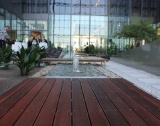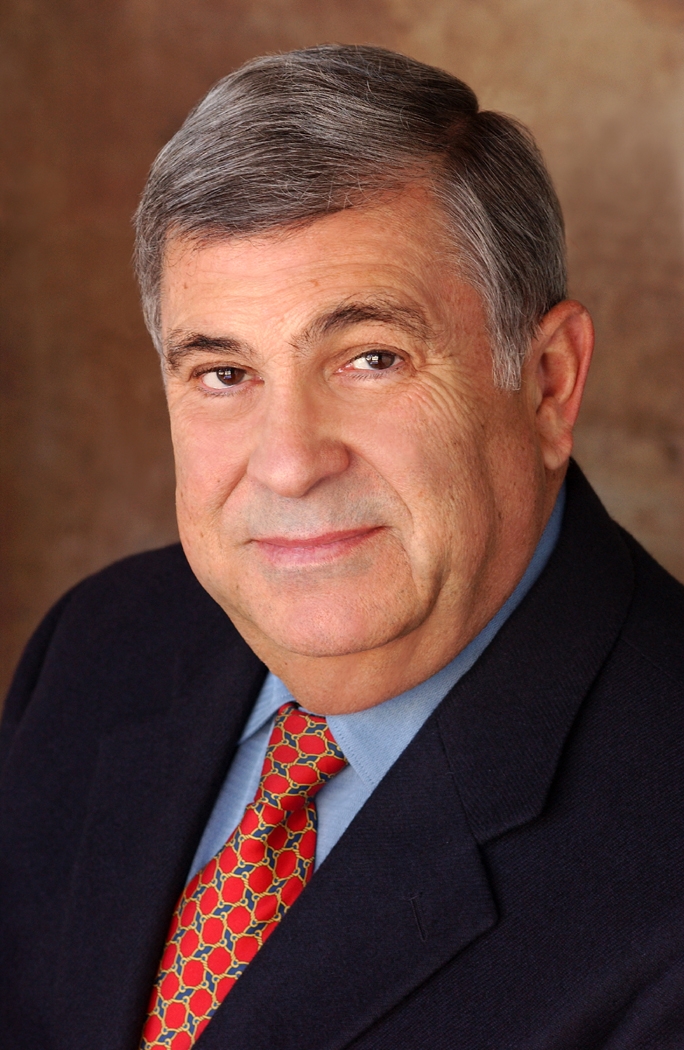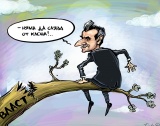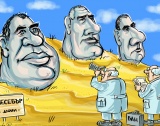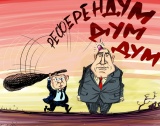АБОНАМЕНТ ЗА НОВИНИ [X]
The future of building is green
 10:40 | 25.04.2013
10:40 | 25.04.2013 1555
1555  коментари 0
коментари 0
Last week, Sofia Airport Center has received a prestigious Prix d’Excellence Award – Bulgaria 2013, given by the International Real Estate Federation (FIABCI). This is the first LEED certified commercial building in Sofia, but there's also a couple of new buildings in Bulgaria with BREEM and DGNB certificate, says Mr. Alan D. Levy, chairman of Tishman International Companies.
By Danail Alekov
Mr. Levy, your company won award in Prix d’Excellence Awards - Bulgaria 2013. What does it mean to you?
It’s gratifying to see that all the hard work of our people is recognized. If you build something better and something that is pleasing to the eye, somewhat different, but very functional and useful, and it’s recognized as a good accomplishment I think it’s a good tribute to our people who have worked very hard to make it happen.
How did you decide to build Sofia Airport Center?
In Los Angeles we have developed what we call Tishman Airport Center - It’s a very similar situation, it was bought as plots of land that had old aircraft buildings on them built around the airport. LAX was not all that big and thriving at that time and airplane factories were around. The airport started to get more traffic and enlarged. We started developing office buildings and then hotels and restaurants. We had a bus service that rode between the airport and the offices. Tenants visiting executives wouldn’t even have to rent a car, wouldn’t have to drive to town, they just had to get on the bus come to their office, walk to the hotel and stay for a day or so, and then go back to Chicago or New York or wherever they came from. So we saw that opportunity, and based on that experience, we thought of doing something similar here.
Why did you choose Bulgaria?
Because land at the time was reasonable in this region, compared to other areas in the world. We got our indoctrination into Central and Eastern Europe in 1990, early 1991 right after the Velvet Revolution in the Czech Republic and there we built about a dozen grocery store anchored neighborhood shopping centers. So we had some experience with a former communist country and we could see the need for new modern facilities - we saw the same thing here. And then Business Park Sofia had started and created an office environment there so more people, more companies came to town at that time there was a movement to the country, because “A” – for its location, “B” – for its environment, the Black Sea and ski resorts of course, and the transportation hubs. So it was a thriving area, so we felt that Bulgaria was the better choice of any of the others around and offered more opportunities. It also had a more stable government, and due to the fact that Leva was tied to the Euro, there was no currency risk. And it was about to come into NATO, and then it was in the waiting room for the EU, so we saw it progressing.
The LEED buildings are not so popular in Bulgaria. How can we change that?
LEED was created probably in the early 80’s, when it became obvious in America that energy was a problem, and that was after the Iran situation. You couldn’t use as much electricity, mandated by law, because of that. So at that time President Clinton was in office and he had created this, almost like an NGO (Non – Government – Organization), to develop ways to conserve energy and make buildings more energy efficient, particularly government buildings, of which we had more than we needed, and other commercial buildings. Last year or a year and a half ago, the government mandated that all government buildings had to be LEED certified. The same situation is with new commercial buildings, I think must be by 2018 for that. The new American Embassy, that was built in Sofia, was the first LEED building in Sofia and all of Bulgaria in fact. We became the first and the only commercial building in Sofia. We see the trend and that’s why we wanted to build this building and this development The project was actually created to be with international standards, something different and better than any other buildings in Sofia, or in Bulgaria for that matter. So we chose to spend a few extra dollars, maybe an extra 10%, to create a LEED certification. As a result the electricity cost alone is about 30% less than a comparable building.
So in the USA LEED buildings were built at first for the governmental institutions. Do you think this is possible in Bulgaria?
That would be great, but the government here doesn’t have the budget. Unless they can get some funding for new buildings, I don’t think it will happen. But there are a couple of new buildings now, which are becoming LEED. There’s also an English (BREEAM) and German (DGNB) version of LEED. So sustainability in energy conservation in buildings is becoming much more popular and really required. I predict that in the next five or six years you will see many more, which is good for the environment.
Mr. Plevneliev was here in October at the official openning. Do you feel the support of the local government?
We do because we’re a large investor. We’ve known the President, from the time he was running Business Park Sofia, and he’s done a wonderful job there. So when he came and saw what we’ve created and he was well aware what it takes to create a development such as SAC This area is growing and picking up and you’ll see a lot more new buildings in the next several years.
When the whole project is finished, it will probablyhave cost 300-350 million Euros, which makes us the largest commercial investor of its type in the country. We expect to create 10,000 jobs here, which is also good for the economy. Wherever we go in the world to build we try to use local people, local materials, and we try to be part of the local economy and become good corporate citizens. Almost all of the more than 2500 workers, who worked on the project, was Bulgarian, most of the products used, are Bulgarian where available.
What kind of companies would be interested in getting offices here?
Call centers, pharmaceutical companies, and we think that over time there’d be a lot of sales offices here, because of the proximity to the airport. There’s that attraction of being right here and not having to fight the traffic to get into town, it’s much more convenient. So we think that there will be a larger variety of companies, that will recognize the advantages of being here – it’s got the wide open space, it’s got a lake, it’s an urban concept in a suburban location. And a lot of buildings in town are just one after another down the street, there’s not much open space, fresh air and light that comes in.
But call centers for example are outsourcing, not local companies. Does it mean that Bulgarian companies make decisions not based on the energy efficiency, but on the price?
Well yes and no. Certainly any company looks at the bottom line and they want to get the best price they can, but employers are becoming more aware of employee satisfaction, whether they’re local or whether they’re from China, Austria or whoever they are. And they pay attention to that because if they have an attractive environment for their people to work in and people are happy to come to work it’s better for them, they get more productivity. But Ironically probably 60 – 70% of our tenants in our logistics center are Bulgarian companies, although the largest one is an American one known as Honeywell. Our first office tenant, which is moving into our A2 building the first of May. There is a local Bulgarian pharmacy company; Paul Mitchell is a locally owned franchise, so everybody here is Bulgarian. The call centers as you say might be not local, but basically they are, because there are local Bulgarians who are hired and a lot of the companies who operate the call centers for the people who are their clients are Bulgarian. We are competitive obviously, and I think people recognize the value of something extra, something a little better, certainly something that is more attractive and they will be willing to pay a little extra money for some comfort.
Do you expect other investors to follow your example of building “green” buildings?
I think they will. Some of them will do so voluntarily and soon they will have to because of the new laws - the EU has them and Bulgaria is starting to have them. We can’t continue to waste and consume as much energy and as much of our environment, we have to figure out a better way to have a better planet, and better ways to do what we need to do.
Do you have any other investment plans in Bulgaria, in the next few years?
Well if the world hadn’t gone upside down we would have had. We had some other ideas, we’d looked at some other investments in Varna and in Plovdiv, but economical conditions changed, and now we’ve got the situation with the political change and I think that we have to wait and see how things work after elections in May. But even during this uncertain period, from the time the government resigned until now, we still have enquiries from multinationals who are still not afraid to come to Bulgaria. The caretaker government is run by professionals, the country is still stable, it still has the support of the EU and its neighbors. Multinationals are still coming and looking. Bulgaria is still a good place to do business. There are good employers, employment, opportunities, it’s still a good workforce, still highly educated people and good tax structure, so there are still lots of reasons for business to come here.
| Tweet |
|






